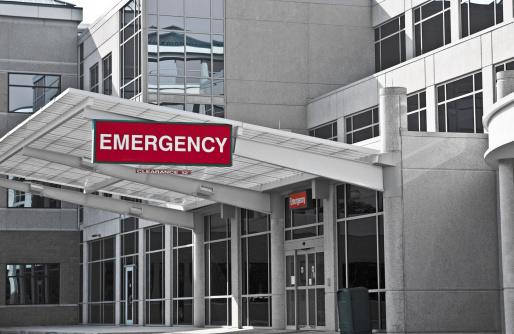In the wake of several cases of Middle East respiratory syndrome coronavirus (MERS-CoV) at a hospital in Jeddah, Saudi Arabia, worries about spread of the virus have prompted temporary closure of the hospital's emergency department, according to reports from the country today.
Also today, news services reported a MERS case in a 59-year-old man in the United Arab Emirates (UAE).
Machine translations of a statement from the Saudi Ministry of Health (MOH) cited 11 MERS cases in Jeddah, including 6 at King Fahd Hospital. It appears that at least some of these were announced previously.
The King Fahd emergency department was closed for 24 hours for disinfection, according to a machine translation posted today on Avian Flu Diary, an infectious disease news blog. It said three contacts of MERS patients at the hospital have tested positive for the virus and are sick, while others have tested positive but have no symptoms.
"This brings the number of confirmed cases and [those] previously announced in the governorate of Jeddah to 11, of whom 2 have died, 6 have recovered, and 3 are still receiving medical care," said an edited translation of the MOH statement provided by ProMED-mail, the disease reporting service of the International Society for Infectious Diseases.
A King Fahd Hospital official said six of the patients were at King Fahd, two were at King Abdul Aziz Hospital, and three others, all doctors, were at three other hospitals, according to a Gulf News report today. The other hospitals are King Faisal, University, and National Guard. The report was based on a story in the newspaper Al Madinah.
The story mentioned rumors that 15 people at King Fahd, including 3 doctors and 4 nurses, were sick with the virus.
Patients were being referred to other hospitals in the city during the closure, according to the MOH statement.
Yesterday the MOH reported four new MERS cases in Jeddah, all of them involving young adults, including one healthcare worker. One patient was in critical condition and two were asymptomatic.
Today's reports did not give any information on infection prevention practices used at King Fahd or on how the virus might have been transmitted there. Previous hospital outbreaks of MERS have been stopped with careful infection prevention steps. But the World Health Organization recently said that transmission of the virus from primary case-patients seems to be occurring in hospitals.
The MOH's MERS-CoV count remained at 175 cases today, including 66 deaths.
New UAE case
In the UAE, meanwhile, the new MERS case was reported in a 59-year-old Abu Dhabi resident who has diabetes and is on dialysis, according a to report today from Arabian Business.com. Health Authority Abu-Dhabi said the man was hospitalized and diagnosed after he complained of respiratory symptoms, according to the story.
The story did not report the man's condition or mention whether he had contact with other MERS patients or with animals. His case is the 21st MERS case identified in the UAE, according to a case list maintained by FluTrackers, an infectious disease news message board.
In other developments, the Saudi Gazette reported today that the governor of Jeddah has ordered a ban on camels in the city in the name of preventing MERS-CoV. The animals are strongly suspected to be a source of human cases, although the precise transmission route is unknown.
The governor ordered that camels be removed from public streets and "all locations inside the city," the story said. In addition, he ordered the destruction of "all random courtyards and locations of camel breeding" in the city.
Survival of MERS-CoV in milk
In related news, a team of US scientists reported yesterday that MERS-CoV can survive for a long time in milk and suggested that consumption of unpasteruized milk, common on the Arabian Peninsula, could be a source of infection.
Writing in Emerging Infectious Diseases, the scientists said they tested the survival of MERS-CoV in the milk of dromedary camels, goats, and cows at different temperatures. They found that over a 72-hour period, virus titers decreased significantly only in goat's milk.
"Our results show that MERS-CoV, when introduced into milk, can survive for prolonged periods," the report says. "Further study is needed to determine whether MERS-CoV is excreted into the milk of infected dromedary camels and, if so, whether handling or consuming contaminated milk is associated with MERS-CoV infection."
They also found that heat treatment of the milk reduced MERS-CoV to undetectable levels, suggesting that pasteurization would be a relatively easy and cost-effective way to prevent transmission.
See also:
Apr 8 Avian Flu Diary post
ProMED-mail translation of MOH statement
Apr 8 Gulf News story
ArabianBusiness.com story on UAE case
FluTrackers MERS-CoV case list
Saudi Gazette report on camel ban
Apr 7 Emerg Infect Dis report





















